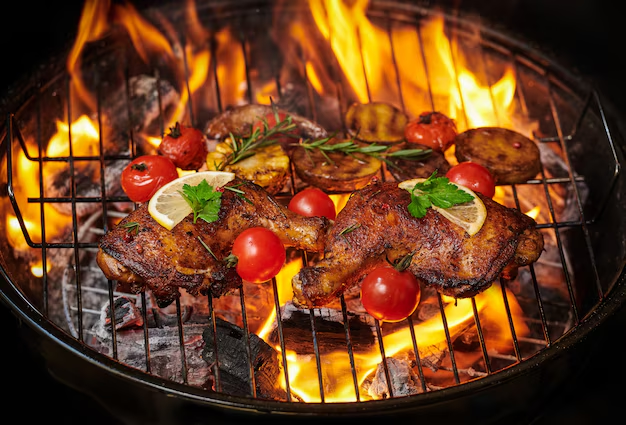
Inspa Kyoto – Grilled food has quickly become a favorite choice for many people worldwide due to its unique smoky flavor and enticing aroma. However, some studies suggest that grilling food can produce compounds that have the potential to cause cancer. Is it true that grilled food increases cancer risk? Let’s delve into the facts.
Grilling is a cooking method that uses direct heat or flame. During this process, high temperatures can cause chemical changes in food, particularly in foods rich in protein and carbohydrates. The formation of carcinogenic compounds, such as acrylamide and polycyclic aromatic hydrocarbons (PAHs), is a primary concern in this regard.
“Continue Reading: Quality Time, The Key to Shaping Children’s Future Development”
Acrylamide is formed when carbohydrate-rich foods, such as potatoes, are grilled or fried at high temperatures. This compound results from the reaction between the amino acid asparagine and sugars in food. While studies have shown that acrylamide can increase cancer risk in laboratory animals, evidence in humans remains limited.
PAHs are generated when fat from food, particularly meat, drips onto flames, creating smoke. This smoke contains harmful compounds that can adhere to the surface of the food. PAHs have been shown to have carcinogenic properties, and excessive exposure to these compounds may increase the risk of several types of cancer, including lung cancer.
Although evidence shows that carcinogenic compounds can form during grilling, it’s important to understand that the relationship between grilled food and cancer is not straightforward. Several factors influence the level of risk, such as the type of food, grilling temperature, and cooking time. Moreover, exposure to these carcinogens depends on how frequently and in what quantity grilled food is consumed.
If you want to enjoy grilled food without worrying about cancer risks, there are steps you can take to minimize exposure to harmful compounds:
Grill food at lower temperatures to reduce the formation of carcinogenic compounds. Avoid charring or burning the food.
Marinating meat before grilling can help lower the production of PAHs. Ingredients like vinegar, lemon, or certain spices can act as protective agents.
Don’t rely solely on grilling to prepare your meals. Try other cooking methods, such as boiling or steaming, to ensure a diverse and nutritious diet.
“Read More: The Hunza People, Secrets to Longevity in a Remote Valley”
Inspa Kyoto – Focus on proper form when working out is essential for achieving safe and effective results. Many individuals rush through…
Inspa Kyoto – Workouts with consistency are the foundation for achieving long-term fitness goals. Many people start with excitement but lose motivation…
Inspa Kyoto – Mindfulness and meditation techniques for stress relief have gained popularity as powerful tools to manage anxiety and tension. People…
Inspa Kyoto – The OCD Diet for weight loss stands for "Obsessive Caloric Diet." This approach focuses on controlling calorie intake through…
Inspa Kyoto – A low-fat diet can be a powerful tool for weight loss. Many people have found success with it by…
Inspa Kyoto – Best workout tips for a full-body burn can help you achieve maximum results. A well-rounded routine targets multiple muscle…
